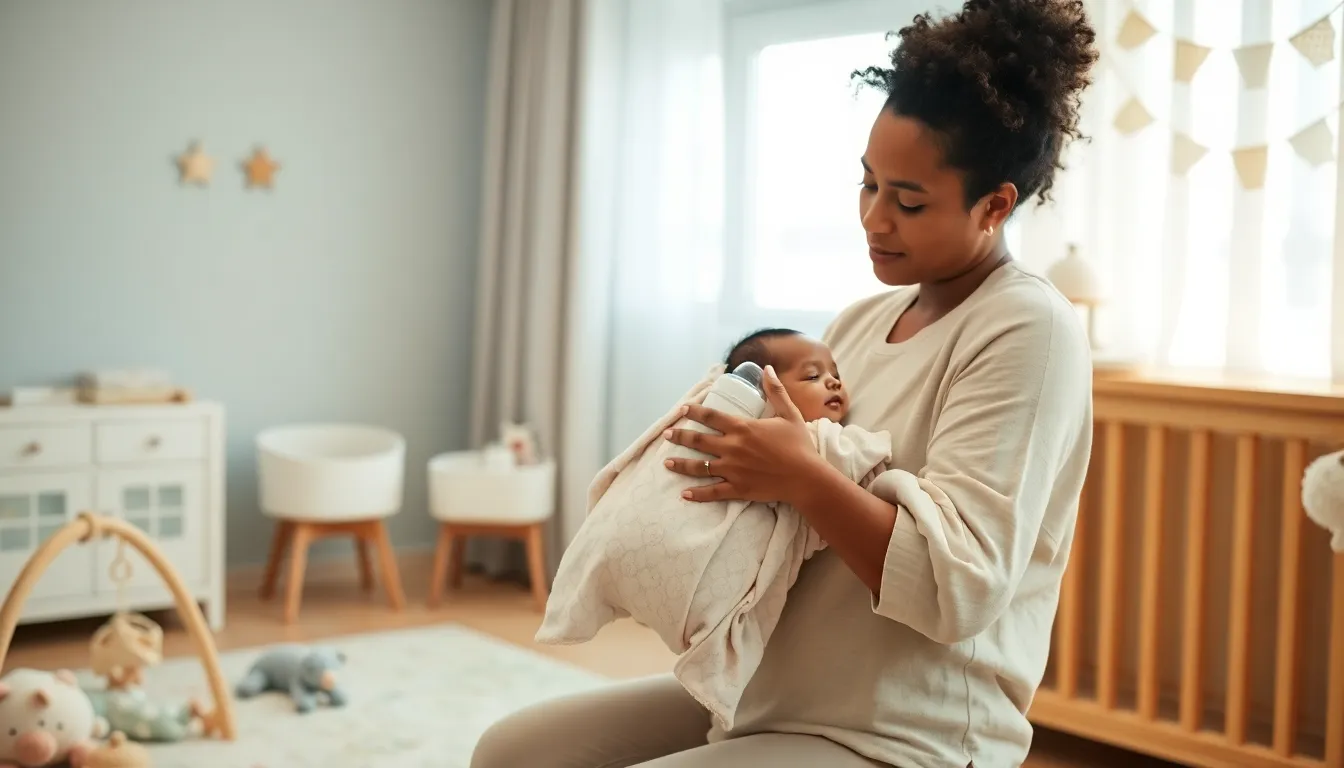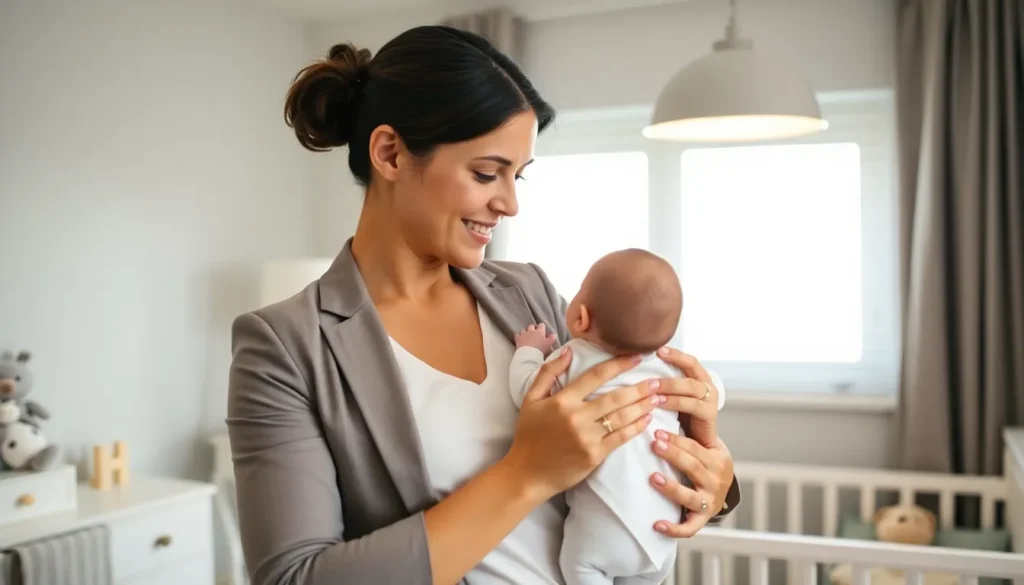Table of Contents
ToggleAh, the glorious sound of a baby’s burp. It’s like music to a parent’s ears, isn’t it? But when will this cacophony of gurgles and squeaks come to an end? For new parents, the timing of this milestone can feel as elusive as the last cookie in the jar. Let’s break down everything you need to know about burping babies, so you can finally retire that burp cloth and reclaim your shoulder.
Understanding Burping in Infants

Burping is an essential part of an infant’s feeding routine. When babies drink milk, whether from a bottle or breast, they often swallow air along with their food. This air can build up in their tiny tummies, causing discomfort. Burping serves as a release valve for that trapped air, allowing babies to feel more comfortable and reducing the chances of spit-up. By understanding how burping works, parents can better manage this routine and make feeding times smoother.
While the act of burping is a normal part of infant care, every baby is unique. Some babies might be burping champions, while others might barely let out a squeak. This variability can be attributed to factors like feeding style, the amount of air they swallow, and their individual digestive systems.
Why Burping Is Important
The importance of burping in infants cannot be overstated. In essence, burping helps prevent discomfort caused by excess air in the stomach. Without a proper burp, babies may become fussy, cry more, and even struggle to sleep well. Imagine trying to enjoy your favorite meal while an air bubble keeps poking at your stomach. That’s how a baby feels without a burp.
Also, burping reduces the risk of more troubling issues like gas colic, which can lead to prolonged periods of crying. For both baby and parents, a good burp means peace of mind.
Typical Age Range for Stopping Burping
So, when do babies stop burping? Generally, burping becomes less necessary around the 4 to 6-month mark. During this age, babies develop better control over their swallowing and digestion. As their diet begins to transition from liquids to solids, they tend to swallow less air.
But, it’s essential to note that each baby is different. Some might stop needing burps sooner, while others may continue to benefit from it up to 12 months or longer. Parents should monitor their own baby’s cues to determine when it’s time to step back from the burping routine.
Signs That Your Baby May No Longer Need Burping
Determining whether your baby still needs burping can often be as intuitive as reading a menu at a fancy restaurant. Here are some signs to look out for:
Increased Self-Sufficiency
As babies grow, they become more self-sufficient in feeding. If your little one seems less gassy and more comfortable after feeds, it may be time to ease up on the burping routine.
Reduced Fussing
If the post-feed fussiness has considerably decreased and your baby seems content without frequent burps, that’s a good indicator.
Digestive Maturity
As infants age, their digestive systems mature, and they begin to handle air better. If you notice your baby rarely spits up or shows signs of discomfort, you can reassess your burping habits.
How to Burp Your Baby Effectively
Burping a baby may seem simple, but there are techniques to ensure it’s done effectively. Here are a few tried-and-true methods:
The Shoulder Method
Hold your baby upright against your shoulder. Support their bottom with one hand and gently pat or rub their back with the other.
Sitting Up Method
Sit your baby on your lap, supporting their chest and head with one hand. With the other hand, pat their back gently.
Lying Down Method
Though less common, some parents prefer lying their baby on their stomach across their lap and patting their back. Note that this might not always elicit a burp, but it works for some.
Always keep a burp cloth handy, as even the most seasoned burpers can have a surprise waiting.
Common Myths About Burping Babies
Several myths swirl around the topic of burping, leading parents astray. Here are a few:
Myth: All babies need to burp after every feeding.
Truth: While many babies do need to burp, some may not. Each baby’s digestive system is unique.




